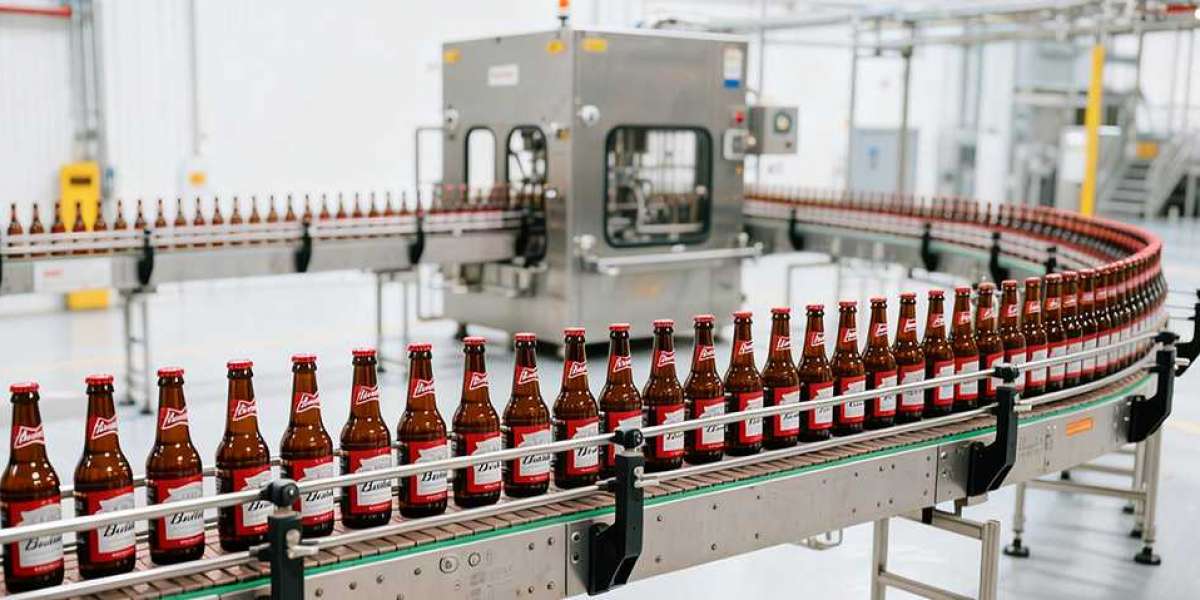Leakage is a big problem for craft breweries. Even small spills of beer during filling waste ingredients, cut profits, and can ruin batches if contamination happens. For craft brewers—who often focus on small-batch, high-quality beers (like IPAs, stouts, or sour ales)—every drop counts. The right beer filling machine doesn’t just fill bottles or cans; it stops leaks before they start. And choosing a trusted beer filling machine manufacturer ensures you get a machine that fits your craft brewery’s needs. Below, we’ll break down how to use a beer filling machine to reduce leakage, from key machine features to picking the right manufacturer.
Key Features of Beer Filling Machines That Prevent Leakage
Not all beer filling machines are built to stop leaks—especially for craft beer, which often has unique traits (like varying carbonation or viscosity). Look for these features to keep beer where it belongs:
Precision Filling Heads
The filling head is the part of the machine that touches bottles/cans and dispenses beer. A poorly designed head will leak around the container’s opening. For craft breweries, choose a machine with:
- Adjustable filling heads: Craft beer uses different container sizes (330ml bottles, 500ml cans, 1L growlers). Adjustable heads fit tightly to each size, so there’s no gap for leaks.
- Soft-seal gaskets: Gaskets made of food-grade silicone or nitrile rubber create a tight seal between the filling head and container. Hard or low-quality gaskets wear out fast and leak—silicone gaskets last longer and work with cold craft beer (which can make other materials stiff).
Carbonation and Pressure Control
Craft beers often have higher or more variable carbonation than mass-produced beers. Too much pressure pushes beer out of the container (causing leaks); too little leads to flat beer. A good beer filling machine has:
- Adjustable pressure settings: You can tweak the pressure to match your beer’s carbonation (e.g., higher for lagers, lower for stouts).
- Foam control: Foam from carbonation can overflow and look like a leak. Machines with slow-fill modes or foam sensors reduce overflow by dispensing beer gently.
Anti-Drip Nozzles
After filling, leftover beer in the nozzle can drip onto containers or the production line. This isn’t just a mess—it’s wasted beer. Look for machines with anti-drip nozzles: these close tightly after filling, so no beer drips out. They’re especially useful for craft breweries that switch between beer styles (and container sizes) often.
Choose a Beer Filling Machine That Fits Your Craft Brewery’s Size
Craft breweries range from small home-based operations to mid-sized local brands. A machine that’s too big or too small will cause leaks. Here’s how to match the machine to your scale:
Small Craft Breweries (200–1,000 Bottles/Cans Per Hour)
Semi-automatic beer filling machines are best here. They’re compact, easy to operate, and don’t need a large team. Key benefits for leak prevention:
- You can manually check the filling head seal for each batch (since batches are small), catching small gaps before leaks happen.
- They have fewer moving parts than automatic machines, so there are fewer places for leaks to start (e.g., no complex conveyor belts that can misalign containers).
Mid-Sized Craft Breweries (1,000–3,000 Bottles/Cans Per Hour)
Fully automatic beer filling machines work better for larger output. Look for machines with:
- Container alignment sensors: These make sure bottles/cans are perfectly under the filling heads. Misaligned containers mean the head doesn’t seal—leading to leaks.
- Integrated cleaning systems: Automatic cleaning (CIP, or Clean-in-Place) keeps filling heads and pipes free of residue. Residue buildup can block nozzles or break seals, causing leaks.
Why a Trusted Beer Filling Machine Manufacturer Reduces Leak Risk
A low-quality beer filling machine (from an unproven manufacturer) might have hidden flaws—like uneven filling heads or cheap seals—that cause leaks later. A reliable beer filling machine manufacturer helps prevent this in three key ways:
They Build Machines for Craft Beer’s Needs
Generic filling machines (made for soda or water) don’t account for craft beer’s carbonation or container variety. A good manufacturer designs beer filling machines specifically for breweries: they test machines with real craft beer (not just water) to ensure no leaks, and they offer customization (e.g., adjusting filling heads for growlers).
They Provide Quality Testing Before Delivery
Reputable manufacturers test every beer filling machine for leaks before sending it to you. They’ll run a test batch with liquid (mimicking beer) to check for spills, drips, or seal gaps. Ask for a test report—this proves the machine works as promised.
They Supply Genuine Replacement Parts
Leaks often start when you use cheap, off-brand replacement parts (like gaskets or nozzles). A trusted beer filling machine manufacturer sells genuine parts that fit your machine perfectly. These parts are made to the same quality standards as the original, so they don’t break or leak early.
Simple Maintenance to Keep Leaks Away
Even the best beer filling machine will leak if you don’t maintain it. For craft breweries (with limited time for complex upkeep), these easy steps work:
- Check gaskets weekly: Inspect filling head gaskets for cracks or wear. Replace them every 3–6 months (or sooner if you see damage)—this is the cheapest way to prevent leaks.
- Clean filling heads daily: After each batch, wipe filling heads with warm, soapy water (avoid harsh chemicals that damage gaskets). Residue from beer (like hops or yeast) can build up and break the seal.
- Calibrate pressure monthly: If your beer’s carbonation changes (e.g., a new batch of IPA), recalibrate the machine’s pressure. This stops over-pressurization (and leaks) from mismatched settings.
For craft breweries, reducing leakage with a beer filling machine is about three things: choosing a machine with leak-preventing features (precision heads, pressure control), matching the machine to your size, and working with a reliable beer filling machine manufacturer. Add simple maintenance, and you’ll cut waste, save money, and keep your craft beer’s quality high.
Every drop of craft beer represents time and care—don’t let leaks waste that. With the right machine and manufacturer, you can focus on what matters most: making great beer for your customers.








